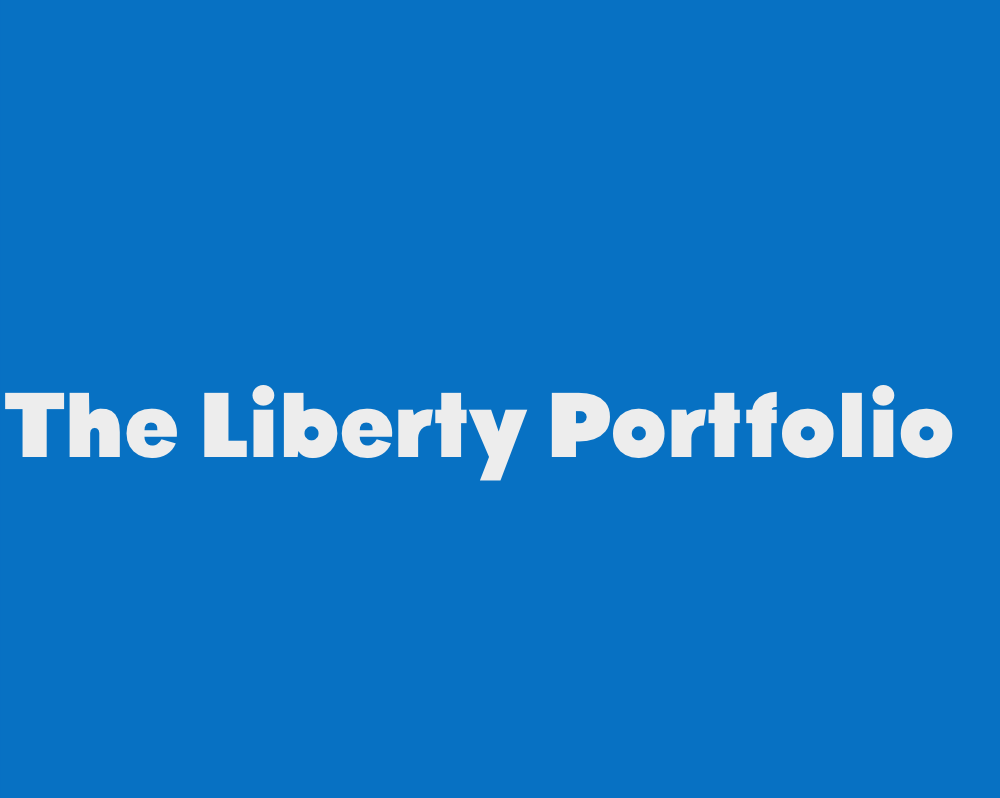Retirement Planning
Determining if a Retirement Plan Is Halal: 7 Key Principles
Baffled by whether your retirement plan is Halal? Uncover the seven crucial principles to ensure its compliance with Islamic law.

Determining if a retirement plan is Halal involves following seven key principles. To begin with, avoid interest-based transactions to comply with Sharia law. Next, opt for Sharia-compliant investments that prioritize ethical practices and transparency. Thirdly, exclude prohibited activities like alcohol and gambling. Fourth in importance, maintain transparency in financial dealings to uphold Islamic principles. In addition, consider social responsibility and ethics when selecting investments. Sixth on the list, adhere to risk-sharing principles for fair distribution in wealth creation. Lastly, prioritize economic development by supporting ethical businesses. These key principles guide the Halal status of retirement plans.
Key Takeaways
- Halal retirement plans avoid interest-based transactions for Sharia compliance.
- Screening criteria exclude unethical activities and ensure financial transparency.
- Investments prioritize social impact and ethical practices.
- Equities selection follows halal principles for ethical investing.
- Sukuk and real estate diversify portfolios for stable returns and growth.
Avoiding Interest-Based Transactions
In our retirement planning, we prioritize avoiding interest-based transactions to align with Halal principles. Islamic finance emphasizes ethical and socially responsible investments, steering clear of riba, which is considered usury under Shariah law. Halal retirement plans focus on guaranteeing that all financial transactions are interest-free, in line with religious beliefs. By excluding interest-based activities, Muslims can uphold their values while securing their financial future.
Choosing to steer clear of interest in our retirement plans means selecting investments that don't involve earning or paying interest. This approach ensures that our financial activities comply with Islamic principles, emphasizing ethical and socially responsible practices. By prioritizing interest-free options, we can navigate the world of finance while staying true to our religious beliefs. It's crucial to ponder the implications of interest-based transactions and opt for investments that align with Halal principles to build a financially secure future.
Sharia-Compliant Investments

Sharia-compliant investments follow Islamic principles like avoiding interest and industries like alcohol, gambling, and pork. These investments undergo screening processes to confirm they align with Shariah law, promoting ethical and socially responsible businesses.
In our discussion, we'll cover the criteria used in selecting these investments and strategies for diversifying one's portfolio.
Investment Criteria Overview
Occasionally, investors seeking halal investments consider various screening criteria to guarantee compliance with Islamic finance principles. Sharia-compliant investments adhere to Islamic principles by avoiding interest, uncertainty, and unethical activities. Halal investments must align with Sharia law, prohibiting involvement in industries like alcohol, gambling, and pork.
Screening criteria for halal investments involve evaluating debt ratios, revenue sources, and business activities to confirm adherence to Islamic finance principles. Islamic finance prioritizes ethical investing, profit-sharing arrangements, and asset-backed transactions. Halal investment criteria emphasize investing in companies with ethical practices, positive social impact, and financial transparency. Investors in search of halal investments focus on businesses that align with these principles to create a socially responsible and financially sound portfolio.
Portfolio Diversification Strategies
Diversifying a halal investment portfolio involves strategically spreading funds across various asset classes and industries to mitigate risk while adhering to Islamic finance principles. When considering Sharia-compliant investments for a retirement plan, it's essential to focus on ethical standards and avoid haram industries like alcohol and gambling.
Here are three key strategies for portfolio diversification in line with Islamic principles:
- Equities: Selecting stocks from sectors such as technology, healthcare, and consumer goods that align with halal investment criteria.
- Sukuk: Including Islamic bonds in the portfolio to diversify and potentially achieve stable returns.
- Real Estate: Investing in property can provide a tangible asset with the potential for long-term growth while remaining Sharia-compliant.
Prohibited Activities Exclusion
In halal retirement plans, we purposefully exclude investments in businesses associated with alcohol, gambling, pork, interest-based banking, and other haram activities. Islamic principles guide the exclusion criteria, ensuring that halal retirement plans steer clear of morally questionable industries like tobacco, weapons, and adult entertainment. Shariah-compliant funds play an important role in this process by screening out companies with high debt levels, excessive interest income, and non-compliant business activities. These funds adhere to ethical guidelines rooted in Islamic finance principles, guaranteeing that investments are both financially and morally sound. By excluding prohibited activities, halal retirement plans align with the values of ethical investing and social responsibility within the Muslim community.
| Prohibited Activities | Examples | Exclusion Criteria |
|---|---|---|
| Alcohol | Breweries, liquor stores | Shariah-compliant guidelines |
| Gambling | Casinos, betting companies | Islamic ethical considerations |
| Pork | Pork producers, processors | Morally sound investments |
Transparency in Financial Dealings

Excluding investments in prohibited activities aligns with Islamic ethical guidelines, and now we turn our focus to the importance of transparency in financial dealings within halal retirement plans.
Transparency in financial dealings involves disclosing all relevant information openly and honestly, which is vital for maintaining ethical and fair practices. To guarantee transparency, it's essential to steer clear of hidden fees, undisclosed risks, or any deceptive practices that could mislead investors. By upholding transparency in financial dealings, individuals can make informed decisions with a clear understanding of the terms and conditions involved. This aligns with Islamic principles that emphasize honesty, integrity, and accountability in all financial transactions. A transparent approach not only fosters trust between parties but also upholds the values of transparency and honesty, in line with Islamic teachings.
- Disclosing all relevant information openly and honestly.
- Avoiding hidden fees, undisclosed risks, or deceptive practices.
- Promoting ethical and fair financial dealings in accordance with Islamic principles.
Social Responsibility and Ethics

Prioritizing ethical considerations and social responsibility is essential to the foundation of halal retirement plans. Socially responsible investing (SRI) incorporates environmental, social, and governance (ESG) factors to drive positive change. Ethical investing aligns with personal values by avoiding controversial industries like tobacco and weapons.
Halal investing principles emphasize moral considerations in compliance with Islamic teachings. Screening criteria exclude companies involved in activities conflicting with Islamic values, such as alcohol and gambling. By integrating social responsibility and ethics, halal retirement plans can offer financial growth while upholding Islamic principles.
It's important to take into account ESG factors and personal values when making investment decisions for retirement. Ensuring investments align with ethical and moral standards not only promotes positive change but also reflects one's commitment to Islamic principles. Social responsibility and ethics play a significant role in shaping halal retirement plans that cater to both financial growth and adherence to Islamic values.
Adherence to Risk-Sharing Principles

We'll now explore the importance of risk-sharing in halal retirement plans.
Risk-sharing principles promote fairness and mutual support among participants, ensuring a balanced distribution of risks.
Risk-Sharing in Investments
Embracing risk-sharing principles in investments reflects our commitment to upholding fairness and mutual responsibility in accordance with Islamic finance principles.
- Promotes Fairness: Risk-sharing aligns with Islamic principles by ensuring a more equitable distribution of wealth among investors.
- Encourages Collaboration: Islamic finance emphasizes a sense of partnership and mutual accountability in financial transactions through risk-sharing models.
- Fosters Wealth Creation: By adopting risk-sharing practices, Islamic financial institutions promote a collaborative approach to wealth creation and distribution, in line with Shariah principles.
Innovative strategies that prioritize risk-sharing not only adhere to Islamic values but also contribute to a more just and cooperative financial system, enhancing wealth distribution and accountability.
Principles of Mutual Support
Adhering to risk-sharing principles in halal retirement plans promotes a sense of community and facilitates equitable distribution of financial burdens and rewards among participants. This mutual support approach guarantees fairness and equity by sharing both profits and losses. It aligns with Islamic values of cooperation, responsibility, and social welfare, emphasizing collective well-being over individual gains.
Participants in halal retirement plans work together to distribute financial risks and benefits, fostering solidarity and a shared sense of responsibility. By upholding these principles of risk-sharing, halal retirement plans create a community-centered approach that prioritizes the common good and mutual support among members.
Fair Distribution of Risks
Implementing fair distribution of risks in a halal retirement plan involves sharing risks among all participants to prevent undue burden on any individual. This adherence to risk-sharing principles aligns with Islamic values of equitable treatment and mutual cooperation. Here are key aspects:
- Equitable Risk-Sharing: Ensuring that risks are distributed fairly based on contributions and benefits received by each participant.
- Promoting Social Justice: By sharing risks proportionately, halal retirement plans uphold ethical considerations and promote economic stability within the community.
- Solidarity and Mutual Cooperation: Encouraging a sense of solidarity among participants, fostering a collaborative approach to managing risks for the collective benefit.
Prioritizing Economic Development

In halal retirement planning, our focus on economic development directs us to invest in businesses that align with ethical principles and contribute positively to society. By prioritizing sustainable growth and supporting industries like healthcare, education, technology, and renewable energy, we guarantee our investments uphold Islamic values.
Avoiding sectors such as alcohol, gambling, tobacco, and unethical practices is essential to maintaining the halal status of retirement plans. Ethical practices, fair wages, and a commitment to societal betterment are key considerations when selecting companies for investment.
Halal retirement plans play an important role in promoting economic development by channeling funds into businesses that not only generate financial returns but also make a positive impact on the community. Through careful selection and adherence to Islamic principles, we can support companies that drive innovation, create jobs, and contribute to a more ethical and sustainable future.
Frequently Asked Questions
What Are the Halal Investment Guidelines?
Halal investment guidelines are principles based on Islamic beliefs that dictate permissible financial activities. These guidelines prohibit involvement in industries like alcohol, gambling, and pork products. Investments must comply with Shariah law, which avoids interest, uncertainty, and unethical practices.
Halal investment emphasizes ethical, socially responsible businesses that positively impact society. Screening investments guarantees alignment with Islamic principles and upholding moral standards in financial endeavors.
How Can I Make My 401K Halal?
When looking to make our 401(k) plans halal, we can start by researching Shariah-compliant investment options like Amana Funds. It's important to review our current plan's holdings to make sure they align with Islamic principles.
Seeking advice from a financial advisor knowledgeable about halal investing can also be helpful.
Lobbying our employers to include halal investment choices in the 401(k) plan can help promote greater diversity in investment options for all employees.
Can Muslims Have Retirement Accounts?
Yes, Muslims can have retirement accounts that align with Islamic principles. These halal accounts steer clear of investments in prohibited industries such as alcohol, gambling, and pork. By adhering to Islamic finance guidelines, we can guarantee our retirement savings are ethically managed.
Sharia-compliant plans provide a way for us to save for the future responsibly. Opting for halal retirement accounts helps us prioritize ethical investments for long-term financial security.
What Are the 3 Important Components of Every Retirement Plan?
When it comes to retirement plans, three key components are social security, personal savings, and pension plans. Social security provides a monthly check for retirees, while personal savings and pension plans help fund retirement.
Employer-sponsored plans like 401(k)s offer benefits such as matching contributions and tax advantages. It's important to take into account these components when planning for retirement.
Conclusion
In wrapping up, when determining if a retirement plan is halal, it's essential to contemplate key principles such as avoiding interest-based transactions, investing in Sharia-compliant assets, and promoting social responsibility.
By adhering to these principles, individuals can guarantee that their financial decisions align with Islamic values and ethics. Remember, financial planning should be done with mindfulness and integrity to uphold religious beliefs and moral standards.
Always prioritize ethical and responsible investing for a secure and halal retirement.
Sophia is the analytical powerhouse of The Liberty Portfolio. Her keen analytical skills and meticulous attention to detail help us stay ahead of the curve. Sophia is responsible for researching current trends, data analysis, and regulatory changes that impact retirement planning. Her rigorous analysis underpins our content, providing the depth and accuracy that our users rely on for making critical investment decisions.
Retirement Planning
Why You Need Retirement Planning Now
Kickstart your financial future with retirement planning now, ensuring a secure and comfortable retirement ahead.

Starting retirement planning now is essential for securing our financial future. By planning early, we can maximize savings, benefit from compounding interest, and have more flexibility in our retirement decisions. This proactive approach reduces stress, offers a sense of security, and sets the stage for a well-prepared financial future. Diversifying income sources, setting clear financial goals, and seeking advice are key steps. Tax benefits, peace of mind, and long-term stability come with a holistic retirement plan. Secure your future by taking the first steps today towards a comfortable retirement.
Key Takeaways
- Early retirement planning maximizes savings and leverages compounding interest.
- It provides a sense of security and reduces stress.
- Planning ahead offers flexibility and more options for retirement decisions.
- Recognizing the importance leads to a well-prepared financial future.
- Starting now ensures a stable financial future and peace of mind.
Importance of Early Retirement Planning
Starting retirement planning early is vital for securing a stable financial future. When we plan for retirement ahead of time, we set ourselves up for financial success by maximizing our savings and allowing compounding interest to work in our favor.
The benefits of early retirement planning go beyond just financial gains; it also provides a sense of security and reduces the stress and uncertainty often associated with retirement. By starting early, we've more flexibility and options available to us when the time comes to retire.
This flexibility allows us to make informed decisions about our financial future and guarantees a smoother shift into retirement life. Hence, it's important to recognize the significance of early retirement planning in order to reap the rewards of a well-prepared financial future.
Secure Financial Future Through Planning

Securing a thorough financial future through retirement planning is essential for ensuring long-term financial stability and maintaining our desired lifestyle. Planning early and diversifying sources of retirement income can provide a safety net for unexpected expenses and increasing medical costs in retirement. By setting clear financial goals and working with a financial advisor, individuals can tailor their retirement savings to meet their specific needs and aspirations. A holistic retirement plan not only considers life expectancy but also aims to fulfill retirement dreams and aspirations.
Retirement planning offers tax advantages and peace of mind by knowing that finances are in order for the future. Whether the goal is to retire early or simply to have a comfortable retirement, strategic planning is key. Investing in retirement accounts and seeking guidance from a financial advisor can help individuals achieve a secure financial future. By taking steps now to build a holistic retirement plan, individuals can pave the way for financial independence and peace of mind in their later years.
Tax Benefits of Retirement Planning

When planning for retirement, it's important to take into account the tax benefits associated with various retirement accounts. Contributing to tax-deferred accounts like traditional IRAs and 401(k)s can lower taxable income, resulting in immediate tax savings.
Utilizing Roth IRAs or Roth 401(k)s can offer post-retirement tax benefits through tax-free withdrawals. Employer-sponsored retirement accounts can also provide tax-efficient investment growth.
Understanding contribution limits and the types of retirement accounts available is vital for maximizing tax advantages. Starting a retirement plan gives you a better chance to save money on taxes and increase your Social Security benefits.
Consider consulting a Certified Financial Planner to explore advanced strategies such as the back-door Roth IRA for high earners or the Savers Credit for lower-income individuals to enhance the amount saved for retirement.
Diversifying Income for Retirement

To guarantee financial stability in retirement, it's vital to diversify income sources, creating a safety net that mitigates risks and adapts to changing circumstances.
Diversifying income sources, such as pensions, investments, and part-time work, is essential for a stable retirement. Having multiple streams of income not only provides flexibility in managing expenses but also helps in unexpected situations.
By balancing income sources, one can maintain a comfortable lifestyle and cover rising costs as well as offset market fluctuations that may impact retirement savings. This strategic approach to diversification reduces financial risk and ensures a more secure financial future.
Embracing a diversified income strategy empowers individuals to navigate retirement with confidence and resilience. Start planning now to build a robust financial foundation that can weather any storm and provide the financial power needed to enjoy retirement to the fullest.
Avoiding Financial Stress in Retirement

Taking proactive steps to address financial concerns can greatly impact one's well-being during retirement. Planning for retirement now is essential to avoid financial stress in later years. Financial stress is not just a mental burden; it can also lead to physical health issues such as diabetes and heart disease. Over 70% of adults worry about money, affecting their overall physical health. Engaging in retirement planning reduces anxiety, depression, and poor sleep, contributing to better emotional well-being. It enhances overall financial wellness, positively impacting both physical and emotional health. By taking the necessary steps to secure our financial future, we can ensure a more comfortable and stress-free retirement.
| Benefits of Retirement Planning |
|---|
| Reduces Financial Stress |
| Improves Emotional Well-being |
| Enhances Physical Health |
| Ensures Overall Financial Wellness |
Frequently Asked Questions
Why Should You Plan for Retirement Now?
We plan for retirement now to secure our future, reduce stress, and guarantee financial stability. By starting early, we take control, build wealth, and enjoy peace of mind. The power lies in proactive preparation for a comfortable retirement.
What Is the $1000 a Month Rule for Retirement?
We save with purpose. The $1000 a Month Rule for Retirement guides us. It's about securing financial freedom. By aiming for $1000 monthly income, we plan wisely, ensuring a comfortable lifestyle in retirement.
What Are the 3 Biggest Pitfalls of Sound Retirement Planning?
For sound retirement planning, we must consider inflation's erosion of savings, underestimating life expectancy leading to fund depletion, and the risk of not diversifying income sources. Our choices now shape our future security.
Why Is It Important to Plan for Retirement and Have a Will?
Planning for retirement and having a will are essential. They guarantee financial security in old age and dictate asset distribution. Both provide peace of mind and stability, preventing family disputes and maintaining desired lifestyles.
Conclusion
In summary, beginning retirement planning early is essential for a secure financial future.
Did you know that only 33% of Americans have saved over $25,000 for retirement?
By taking advantage of tax benefits, diversifying income, and avoiding financial stress, you can set yourself up for a comfortable retirement.
Don't wait, start planning now to guarantee a worry-free future.
Lawrence founded The Liberty Portfolio to make complex retirement planning accessible to everyone. With extensive experience in investment strategies and financial planning, he leads our strategic direction and ensures that our offerings are aligned with the latest economic trends and regulations. Lawrence’s deep understanding of market dynamics and investment opportunities shapes our platform’s foundational content and tools.
Retirement Planning
Evaluating the Quality of an Insured Retirement Plan
Start evaluating your insured retirement plan quality by considering benefits, costs, and tax implications – your financial future depends on it.

Evaluating an insured retirement plan's quality involves examining policy benefits, costs, cash value, fund accessibility, tax implications, surrender charges impact, and withdrawal restrictions. Evaluate if the plan aligns with your retirement goals, and seek professional advice to understand its nuances. Consider premiums, fees, and cost structures to make informed decisions. Regularly monitor cash value growth to meet financial objectives. Utilize tax-advantaged fund accessibility for stable retirement income. Be mindful of surrender charges and withdrawal restrictions to maximize plan benefits. Understanding these aspects is key to evaluating the effectiveness of your insured retirement plan further.
Key Takeaways
- Assess alignment with financial goals and retirement objectives.
- Evaluate cost structure for premiums, fees, and charges.
- Monitor cash value growth for tax-advantaged income.
- Understand tax implications on contributions and withdrawals.
- Consider impact of surrender charges and withdrawal restrictions.
Policy Benefits Evaluation
When evaluating an insured retirement plan, we prioritize the policy benefits to determine its alignment with our financial goals and retirement objectives. It's essential to take into account the insurance aspect of the plan, ensuring that it provides the necessary coverage to protect our assets and loved ones. Additionally, looking into the policy benefits related to retirement is vital. We should pay close attention to features like tax-free distributions, which can have a substantial impact on our financial situation during retirement.
As we assess the policy benefits, we must also examine how they contribute to our overall financial goals. Ensuring that the plan offers potential gains and aligns with our retirement objectives is key to making an informed decision. Moreover, policies that offer flexibility with no age requirements for certain distributions can provide us with more control over our retirement funds. Seeking professional guidance to understand the nuances of these benefits is advisable to make the most of our retirement planning.
Cost Analysis

Let's explore the analysis of costs associated with the insured retirement plan to gauge its financial impact and competitiveness. When evaluating the quality of an insured retirement plan, it is important to delve into the cost analysis. This involves examining premiums, fees, and charges to understand the financial implications and competitiveness of the plan in the market. To assist in this evaluation process, a comparison of the cost structure with similar products can provide valuable insights.
| Aspect | Details |
|---|---|
| Premiums | Initial & Ongoing |
| Fees | Management & Admin |
| Charges | Surrender & M&E |
Cash Value Assessment

Evaluating the cash value within an Insured Retirement Plan (IRP) involves examining the growth of funds held in the policy. The cash value accumulation in an IRP plays a vital role in providing a tax-advantaged income stream during retirement.
By monitoring the growth of cash value, individuals can make certain that their IRP stays aligned with their financial goals. Accessing the cash value through withdrawals or policy loans offers flexibility to meet financial needs in retirement.
It's essential to gauge the performance of the cash value component regularly to maximize the benefits of an IRP. Understanding how the cash value grows over time and how it contributes to achieving financial objectives is key to making informed decisions about the IRP.
Fund Accessibility Review

Fund accessibility in Insured Retirement Plans (IRPs) presents a tax-advantaged method for meeting financial needs during retirement. IRPs offer the flexibility of accessing funds through policy loans or tax-free withdrawals from the cash value, providing an efficient way to supplement retirement income. Policy loans enable individuals to access cash value without triggering taxable events, allowing for strategic financial planning. Withdrawals from the cash value are not subject to taxes, enhancing the overall benefits of IRPs for retirement planning. The accessibility of funds through IRPs offers significant tax advantages, making it a powerful tool for securing financial stability during retirement.
| Fund Accessibility Features | Benefits |
|---|---|
| Policy Loans | Access cash value without tax implications |
| Tax-Free Withdrawals | Provide flexibility for retirement needs |
| Retirement Income | Supplement income efficiently |
| Tax Advantages | Enhance financial planning |
| Fund Accessibility | Secure financial stability in retirement |
Tax Implications Examination

When evaluating an Insured Retirement Plan, it's important to take into account the tax implications. Understanding the tax efficiency of contributions, potential penalties for early withdrawals, and the consequences of policy surrender is vital.
Tax Efficiency Assessment
Evaluating the tax efficiency of an Insured Retirement Plan (IRP) involves analyzing the implications of contributions, withdrawals, and distributions to optimize financial outcomes. Understanding the tax treatment of cash value growth, policy loans, and tax-free death benefits is vital in evaluating the tax efficiency of an IRP. IRPs can provide tax-deferred growth on cash value, tax-free withdrawals up to basis, and potentially tax-free death benefits for beneficiaries. Proper tax planning within an IRP can maximize benefits, minimize tax liabilities, and enhance the retirement strategy's effectiveness.
| Tax Efficiency Considerations | Benefits |
|---|---|
| Cash Value Growth | Tax-Deferred Growth |
| Policy Loans | Potential Tax Advantages |
| Tax-Free Withdrawals | Up to Basis Amount |
| Tax-Free Death Benefits | Potential for Beneficiaries |
Retirement Account Contributions
As we examine the tax implications of contributing to an Insured Retirement Plan (IRP), it's important to understand that these contributions aren't tax-deductible like traditional retirement accounts.
However, the growth of these contributions within the plan is tax-deferred, and if structured correctly, withdrawals can be tax-free. The type of permanent life insurance policy chosen for the IRP can impact the tax implications.
By leveraging the cash value growth of the policy, an IRP can provide tax-advantaged retirement income. To maximize tax benefits, careful planning and contribution structuring are essential.
It's vital to take into account these factors when aiming to optimize the tax efficiency of an Insured Retirement Plan for long-term financial security.
Withdrawal Penalty Consideration
Considering the potential impact of withdrawal penalties on an Insured Retirement Plan (LIRP) is essential for long-term financial planning and growth strategies. When evaluating withdrawal penalty considerations in an LIRP, we must be aware of the following:
- Early distribution can lead to significant tax implications and reduce the policy's cash value.
- Penalties imposed by the IRS aim to deter premature withdrawals from LIRPs.
- Understanding the tax consequences of early withdrawals is critical to avoid unnecessary penalties.
- Careful planning and consideration of tax implications can help maximize the benefits of an Insured Retirement Plan.
Premium Variations Consideration

Exploring the impact of premium variations on an insured retirement plan is vital for maximizing contributions and cash value growth. Financial decisions regarding premium variations can greatly influence the policyholder's ability to boost their contributions and enhance the cash value growth of their plan.
By understanding how premium adjustments affect the plan, individuals can make informed choices to optimize their financial outcomes. Policyholders should consider the implications of different premium payment options, such as level, flexible, or single premium payments, to align with their changing financial circumstances and coverage needs.
Adapting premium variations in response to evolving situations can help secure long-term benefits and guarantee the sustainability of the insured retirement plan. It's important to evaluate premium variations thoughtfully, as they play a fundamental role in shaping the overall effectiveness and success of the retirement strategy.
Consequences of Plan Surrender

Giving up an insured retirement plan can have significant consequences, including the impact of surrender charges and analysis of withdrawal restrictions. These factors can affect the overall financial value and growth potential of the plan, influencing long-term retirement income.
It's important to carefully assess these implications before making any decisions to surrender a plan, as understanding the full scope of consequences is essential for informed retirement planning.
Surrender Charges Impact
Understanding the impact of surrender charges is vital when evaluating an insured retirement plan. Here are four key points to keep in mind:
- High surrender charges can greatly reduce the cash value of the policy, impacting potential gains.
- Policy terms often specify the surrender charge schedule, so it's essential to review this information before making a commitment.
- Early cancellation may result in financial consequences and loss of benefits, making it important to plan for the long term.
- Being aware of surrender charges can help investors make informed decisions and avoid unnecessary fees, empowering them to maximize the benefits of their retirement plan.
Withdrawal Restrictions Analysis
In evaluating the implications of surrendering an Insured Retirement Plan, it's important to analyze the restrictions on withdrawals to comprehend the full impact on financial stability and long-term retirement goals. Withdrawal restrictions can result in tax consequences and penalties, affecting retirement income and overall savings.
Plans with surrender charges may reduce the cash value available upon surrender, further diminishing potential benefits. Surrendering the plan might also limit access to tax-advantaged funds important for retirement planning. Understanding these withdrawal restrictions is essential for making informed decisions regarding the Insured Retirement Plan.
Frequently Asked Questions
What Factors Should You Consider When Evaluating a Retirement Plan?
When evaluating a retirement plan, we consider investment options, fees, and performance. We assess administrative efficiency, compliance with regulations, and communication strategies. Fiduciary responsibilities, legal compliance, reporting, and disclosure also play vital roles in our evaluation process.
What Are the 3 Important Components of Every Retirement Plan?
When planning our retirement, we focus on savings, investments, and insurance. Regular contributions build a financial cushion, diversified investments grow funds, and insurance protects against unexpected events. These components combine for a secure retirement.
How Do You Evaluate a 401K Plan?
When we assess a 401k plan, we examine its investment choices, fees, and performance against our retirement objectives. We verify that it complies with regulations, communicates effectively, and upholds fiduciary responsibilities to secure our future.
What Does a Good Retirement Plan Look Like?
A good retirement plan looks like a well-structured financial vehicle that offers diversification, tax efficiency, flexibility, inflation protection, and ongoing reviews to guarantee alignment with retirement goals. It should maximize returns and minimize risks.
Conclusion
In evaluating the quality of an insured retirement plan, it's essential to take into account:
- Policy benefits
- Costs
- Cash value
- Fund accessibility
- Tax implications
- Premium variations
- Surrender consequences
Each aspect plays a significant role in determining the effectiveness and efficiency of the plan.
By thoroughly examining these factors in parallel, you can make informed decisions to secure a stable and prosperous retirement future.
Remember, careful evaluation leads to a secure financial future.
Lawrence founded The Liberty Portfolio to make complex retirement planning accessible to everyone. With extensive experience in investment strategies and financial planning, he leads our strategic direction and ensures that our offerings are aligned with the latest economic trends and regulations. Lawrence’s deep understanding of market dynamics and investment opportunities shapes our platform’s foundational content and tools.
Retirement Planning
How to Withdraw From Your Retirement Plan
Hone your retirement withdrawal strategy with age considerations, penalty-free options, and expert advice to optimize your income – delve into the details ahead!

When withdrawing from your retirement plan, consider age requirements for penalty-free withdrawals at 59 ½. Explore strategies like lump sums or periodic payments while understanding required minimum distributions for Traditional IRAs. Seeking professional financial advice can offer tailored strategies for your needs, like managing tax implications and withdrawal rules. Tailor your plan to income needs and consider exceptions for penalty-free withdrawals, such as for home purchases. It's crucial to make well-informed decisions to secure a stable income stream in retirement.
Key Takeaways
- Consider age 59 ½ for penalty-free withdrawals from retirement plans.
- Understand different withdrawal strategies like lump sum or periodic payments.
- Be aware of Required Minimum Distributions for Traditional IRAs.
- Seek professional financial advice for personalized withdrawal recommendations.
- Tailor withdrawal strategy to match income needs and financial objectives.
Age Requirements for Penalty-Free Withdrawals
When we reach age 59 ½, we can start making penalty-free withdrawals from retirement plans. This age marks a significant milestone in our financial journey, granting us the freedom to access our hard-earned funds without facing additional taxes or penalties. It's a moment of empowerment, where we can take control of our retirement savings and utilize them strategically to support our desired lifestyle.
One key consideration at this age is the traditional IRA, which allows for penalty-free withdrawals once we reach this pivotal point. By understanding the rules surrounding withdrawals from a traditional IRA, we can optimize our financial decisions and make the most of our retirement savings. Planning ahead and being aware of the age requirements for penalty-free withdrawals is vital in managing the complexities of retirement planning.
As we approach this age, it's essential to assess our financial goals and consider how we can leverage our retirement funds to secure a prosperous future. By staying informed and proactive, we can make informed decisions regarding our withdrawals and set ourselves up for financial success in the long run.
Different Withdrawal Strategies to Consider

When planning for retirement, we can opt for a Lump Sum Option or a Periodic Payment Plan to manage our withdrawals effectively.
These strategies allow us to tailor our income stream according to our financial needs and investment goals.
Lump Sum Option
Considering different withdrawal strategies is vital when deciding on the lump sum option for your retirement account balance. A lump sum withdrawal provides immediate access to your entire account balance, but it's important to weigh the tax implications and penalties involved.
If you're under 59.5 years old, you may face a 10% penalty on the withdrawal. Additionally, the full amount taken out as a lump sum could be subject to income taxes.
To maximize your retirement income and future growth potential, explore alternative strategies like systematic withdrawals or annuitization. These methods offer more controlled ways to manage your funds while potentially reducing tax burdens and penalties.
Evaluate all options carefully before making a decision to ensure your retirement savings work most effectively for your financial goals.
Periodic Payment Plan
Exploring the Periodic Payment Plan as an alternative to lump sum withdrawals offers retirees flexibility in managing their retirement income streams. With this strategy, retirees can choose between fixed dollar amounts or systematic withdrawals, tailoring their withdrawals to meet specific income needs and goals.
It's important to weigh the tax implications and potential impact on long-term savings when opting for the Periodic Payment Plan. This method guarantees consistent income streams during retirement, providing a sense of stability and financial security.
Understanding Required Minimum Distributions (RMDs)

To comprehend Required Minimum Distributions (RMDs), we need to grasp that they're applicable to Traditional IRAs but not Roth IRAs. These distributions, mandated by the IRS, guarantee that individuals withdraw a minimum amount from their Traditional IRAs annually once they reach a certain age, currently set at 72 for 401(k)s. Failure to withdraw the required minimum could result in a tax penalty, underscoring the importance of adhering to these regulations.
When it comes to taxation, the funds withdrawn through RMDs are treated as ordinary income, impacting your tax liabilities for the year in which they're taken. It's essential to plan ahead for these distributions, considering their potential tax implications and incorporating them into your overall retirement income strategy.
Additionally, be aware that early withdrawals from Traditional IRAs before the age of 59 1/2 can trigger a 10% tax penalty on top of the regular income tax due, making it vital to understand the rules surrounding these retirement accounts to avoid unnecessary financial setbacks.
Seeking Professional Financial Advice

When planning to withdraw from a retirement plan, it's important to seek professional financial advice.
Financial advisors can provide tailored guidance to optimize retirement income and navigate tax implications.
Their expertise can help create a sustainable withdrawal strategy that aligns with both short-term financial needs and long-term retirement goals.
Expert Guidance Benefits
Seeking professional financial advice is crucial when planning for retirement withdrawals to guarantee optimal outcomes tailored to individual needs and goals. Consulting a financial advisor can provide valuable insights into withdrawal strategies, helping navigate complex tax implications effectively. Advisors offer personalized recommendations on the timing, amounts, and methods of retirement plan withdrawals, aiming to minimize taxes, penalties, and risks associated with withdrawals.
Their expertise ensures a secure and sustainable retirement income plan aligned with specific needs and objectives. By working with a financial advisor, individuals can optimize their retirement savings, making informed decisions that support long-term financial security. Expert guidance benefits individuals by offering tailored strategies that maximize retirement funds and minimize potential pitfalls.
Financial Planner Importance
Considering our unique financial situation and retirement goals, a financial planner plays a pivotal role in providing in-depth advice tailored to optimize our retirement income strategy. Seeking professional advice from a financial planner can help us navigate the intricate tax implications and withdrawal rules associated with retirement plans.
By working with a financial planner, we can develop a withdrawal strategy that maximizes our retirement income while minimizing taxes and penalties. Their expertise allows for a thorough analysis of factors such as risk tolerance, investment options, and market trends to optimize our retirement savings.
Consulting a financial planner instills confidence in our retirement plan, ensuring a secure financial future and peace of mind as we move forward.
Tailoring Withdrawal Strategy to Income Needs

Tailoring our withdrawal strategy to match our income needs in retirement involves a careful assessment of our desired lifestyle and expenses to guarantee financial stability. To secure a powerful and strategic approach, consider the following:
- Determine Your Desired Income Needs: Calculate your retirement income requirements based on your lifestyle preferences and anticipated expenses to establish a clear financial goal.
- Tailor Your Withdrawal Strategy: Customize your withdrawal plan to align with your income needs, whether you opt for a fixed or flexible approach that suits your financial objectives.
- Consult with a Financial Advisor: Seek guidance from a professional advisor to create a tailored withdrawal strategy that maximizes your retirement income potential and safeguards your financial future.
Rules and Regulations for 401(k)s

Understanding the rules and regulations governing 401(k) accounts is vital for effectively managing retirement savings. When it comes to 401(k) withdrawals, there are specific guidelines to follow.
At 59.5 years old, individuals can start withdrawing funds from their 401(k) penalty-free, although in some cases, this age threshold is lowered to 55. Mandatory withdrawals, known as required minimum distributions (RMDs), must begin at age 72, or 70.5 for certain individuals.
Early withdrawals before the age of 59.5 come with a 10% penalty in addition to income taxes. However, hardship withdrawals are exempt from the 10% penalty, though income tax payment is still required.
Additionally, 401(k) loans allow for borrowing up to $50,000 or 50% of the vested balance without incurring the 10% penalty. These loans must be repaid within five years. It's essential to adhere to these rules to maximize the benefits of your 401(k) while avoiding unnecessary penalties.
Strategies for Roth and Traditional IRAs

Exploring effective strategies for managing Roth and Traditional IRAs is vital for optimizing your retirement savings. When contemplating withdrawals from these accounts, it's important to make informed decisions to maximize your financial power. Here are three potent strategies to ponder:
- Utilize Roth IRA Contributions: Take advantage of penalty-free withdrawals on your Roth IRA contributions. By tapping into these funds strategically, you can access money without incurring additional taxes or penalties, giving you more control over your financial future.
- Plan for Traditional IRA Withdrawals: Be mindful of the tax implications and penalties associated with Traditional IRA withdrawals before age 59 ½. Consider waiting until you reach age 59 ½ to avoid the 10% penalty and make sure that you're making the most of your retirement savings.
- Leverage Exceptions: Understand the exceptions that allow for penalty-free withdrawals from both Roth and Traditional IRAs, such as first-time home purchases or qualified education expenses. By knowing and utilizing these exceptions, you can make the most of your retirement funds while staying in control of your financial destiny.
Frequently Asked Questions
Can I Pull My Retirement Money Out Whenever I Want?
Yes, we can't pull retirement money out whenever we want. IRS rules dictate specific conditions for withdrawals. Early access before 59 ½ could incur penalties. Understanding regulations safeguards savings from unnecessary losses and taxes.
Can I Close My 401K and Take the Money?
We can close a 401(k) and take the money, but it may lead to penalties. Consulting a financial advisor is essential to weigh the consequences and explore alternatives like hardship withdrawals or loans before making a decision.
How Do I Start Withdrawing for Retirement?
To start withdrawing for retirement, it's essential to understand the implications of early withdrawals. Consult a financial advisor for guidance on managing penalties and taxes, ensuring your retirement savings remain secure and optimized for future use.
Can a Retirement Plan Be Cashed Out?
Yes, a retirement plan can be cashed out, but it may incur penalties and taxes. Consider the long-term impact before making this decision. Consult a financial advisor for guidance on reaching your financial goals.
Conclusion
As we wrap up our discussion on how to withdraw from your retirement plan, remember that managing your finances is like sailing a ship on the open sea.
Stay the course, adjust your sails as needed, and seek out the guidance of experienced captains along the way.
With careful planning and strategic decision-making, you can confidently sail into the sunset of retirement, knowing that your financial future is secure.
Fair winds and following seas on your retirement journey!
Lawrence founded The Liberty Portfolio to make complex retirement planning accessible to everyone. With extensive experience in investment strategies and financial planning, he leads our strategic direction and ensures that our offerings are aligned with the latest economic trends and regulations. Lawrence’s deep understanding of market dynamics and investment opportunities shapes our platform’s foundational content and tools.
-

 IRA Investing3 months ago
IRA Investing3 months agoUnderstanding Your Individual Retirement Account (IRA): Types, Investments, and How It Works
-

 Bitcoin IRA3 months ago
Bitcoin IRA3 months agoBitcoin IRA Gold: Secure Your Retirement Savings
-

 IRA Investing3 months ago
IRA Investing3 months agoHow Are Roth IRAs Invested?
-

 IRA Investing3 months ago
IRA Investing3 months agoIRA Investing Basics
-

 Bitcoin IRA3 months ago
Bitcoin IRA3 months agoEthereum IRA: Invest in Crypto with Your Retirement Fund
-

 Gold IRA3 months ago
Gold IRA3 months agoDiscover the Advantages of a Gold Retirement Account
-

 Bitcoin IRA3 months ago
Bitcoin IRA3 months agoIs Bitcoin IRA Tax Free?
-

 Bitcoin IRA3 months ago
Bitcoin IRA3 months agoUltimate Guide to Crypto IRA Investment Options













